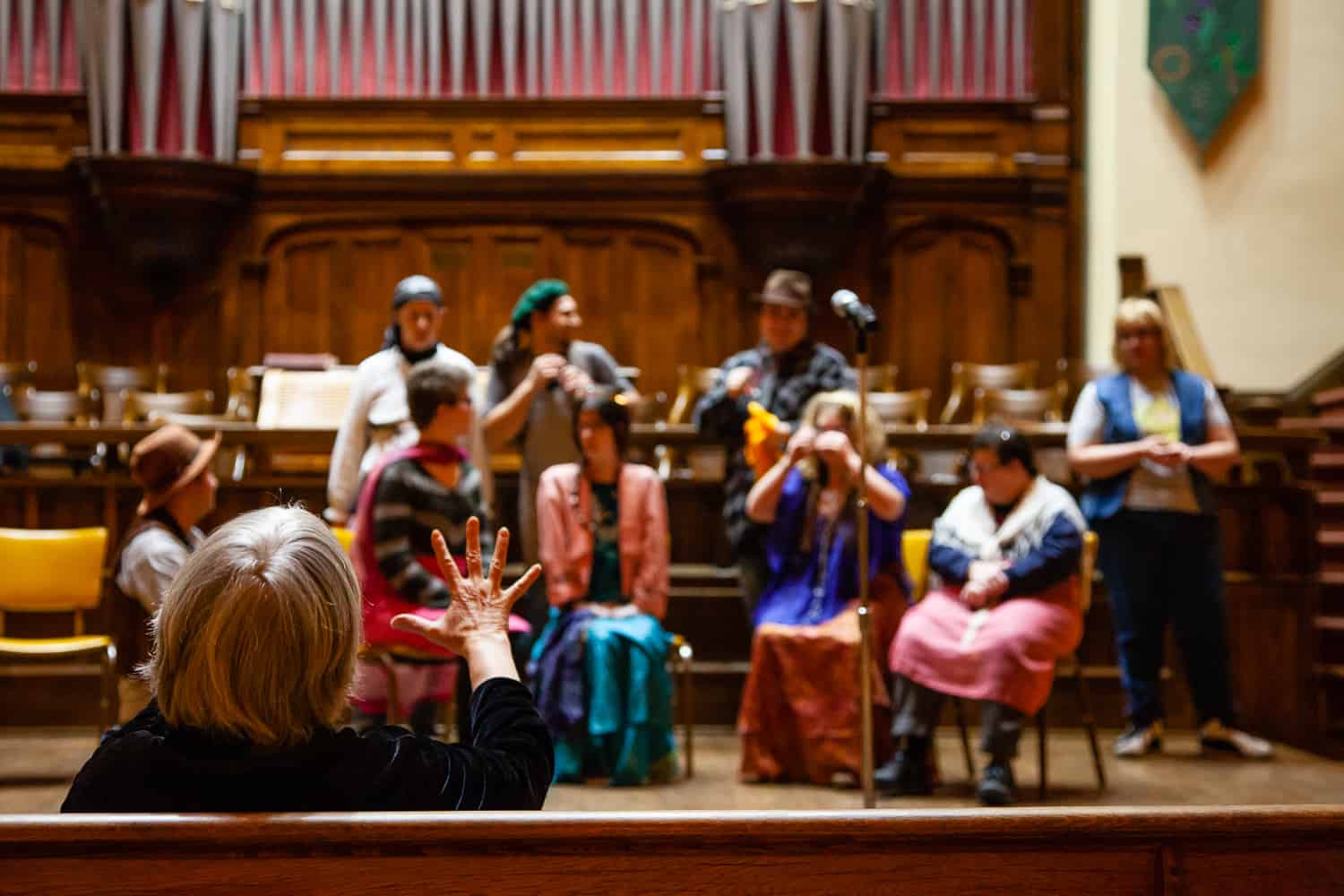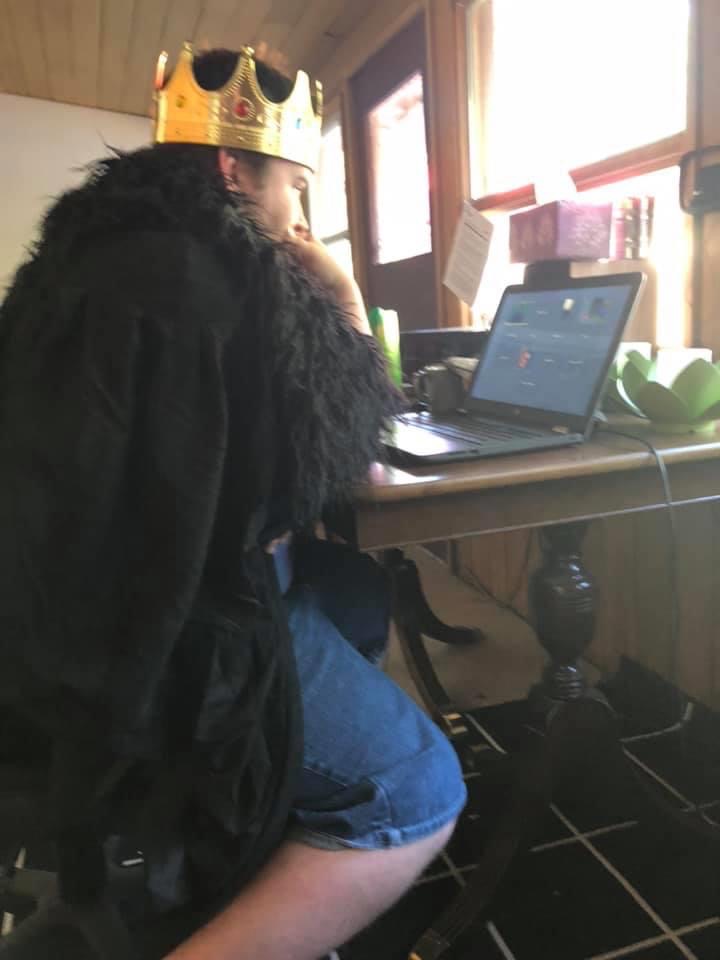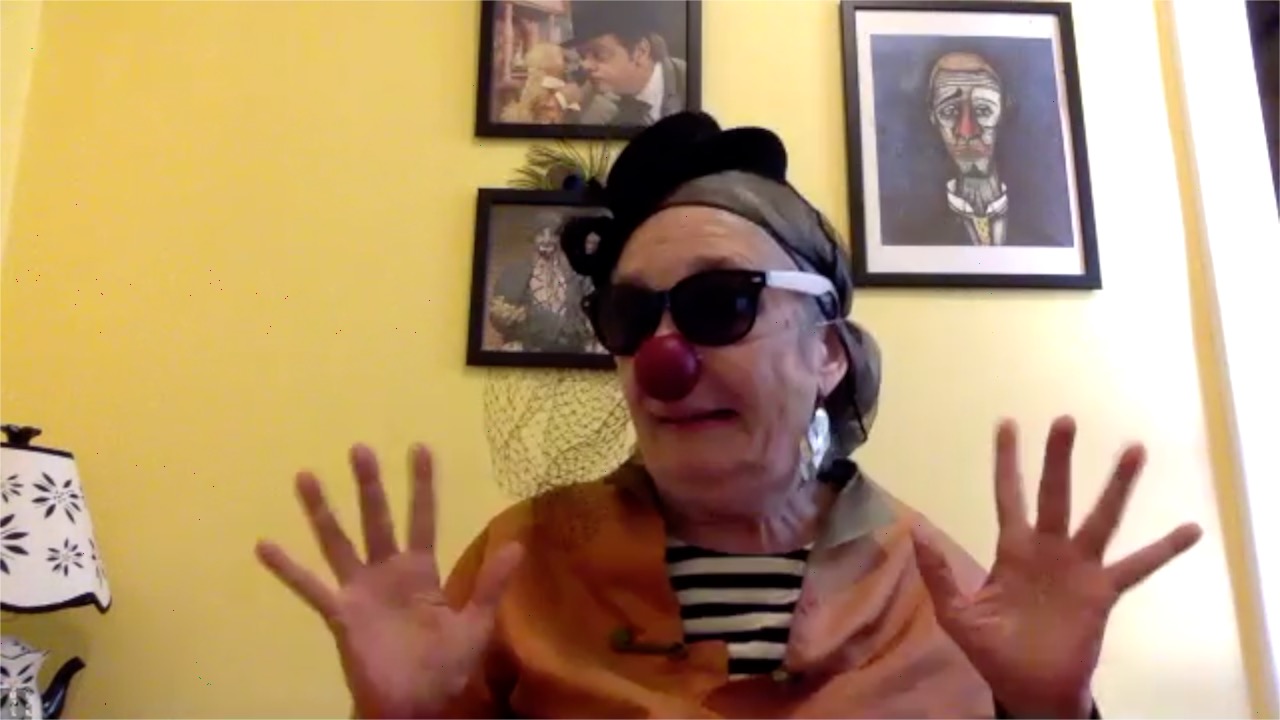 Artists at work. United Way for Inclusion Winnipeg.
Artists at work. United Way for Inclusion Winnipeg.
Written by guest blogger Sue Proctor.
I currently teach a drama class for adults with intellectual disabilities at Inclusion Winnipeg. In March, with the coming of the pandemic, drama classes and shows were all cancelled. Like the university, we moved the class online and everything changed. The stage is now a square screen where each participant becomes a talking head. Drama classes depend on focus, movement and imagination. What could we carry over to classes on the screen?

King Arthur Online.
Storytelling seemed like a good place to start. My basic exercise from clowning called “Silly Objects” transformed. My bag of objects sat in my closet, but I asked participants to find something close by them to show us and tell us about it. I asked them to make up a story about the object. I asked them to use it an unusual way so we could guess what they were doing. Then I asked them to make up a story from the object’s point of view—as if the object was talking.
This might seem like a lot of spontaneity to ask from the participants but I’ve found that people step up to the plate with their bat in hand. They are amazed at the creativity they find in themselves. Humour is always important. It’s important that we laugh together at our difficulties and our creations.
There is the question of how do you do a show in the square of a screen? Each person has a limited space for movement. The actors need to find their own costumes. The set is the room where their computer is set up. Another difficulty is knowing when another actor is going to speak. Remembering a script is not how we work; we improvise. When we improvise in person, we pick up physical cues from each other. How can we create those cues on the screen and play together?
I don’t have the answers to these questions, but we’re going ahead anyway. We’re learning as we go. Having a creative project to work on together helps us to get through the time of the lockdown and social distance. One thing we do know, is that online platforms do not contribute to the spread of COVID-19.

Agnes on Zoom.
Sue Proctor holds an MA from the Concordia University Individualized Program (INDI), where the focus of her thesis was the archetypal role of the clown. She researched clowning after performing and teaching for over thirty years. Creator of six original fringe theatre shows, Sue was a founding member of the Canadian Association of Therapeutic Clowns and co-founded the St. Boniface hospital clown program. Sue uses clowning to inform her work teaching drama to all ages and abilities and creates performances combining clown with storytelling and puppets. comedy-clownesque@gmail.com
Her latest article in Canadian Theatre Review entitled “Clowning but Not: A Clown’s Approach to Drama for People with Intellectual and Physical Disabilities” is free to read for a limited time here.
The UTP Journals blog features guest posts from our authors. The opinions expressed in these posts may not necessarily represent those of UTP Journals and their clients.
Comments on this entry are closed.